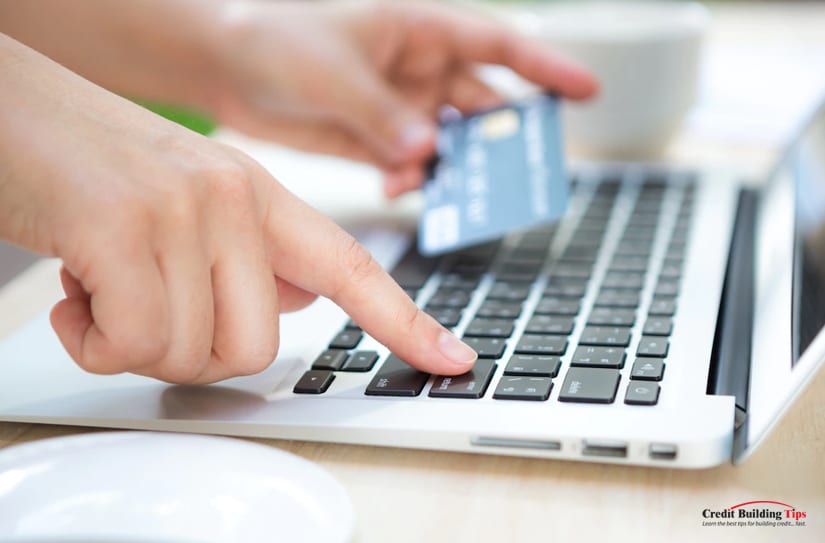If you need to rebuild your credit, you're not alone. In 2022, 15.5% (39.28 million) of Americans have bad credit, and 21.7% (54.99 million) have fair credit.
While that may seem like a lot — 94.27 million people combined, the good news is that the percentage of Americans with good credit increased by 5% year-over-year this year.
That's the highest year-over-year increase in 16 years!
 One of the ways to rebuild your credit is by working with a second-chance credit union. They're a great way to get a fresh start at rebuilding your banking history.
One of the ways to rebuild your credit is by working with a second-chance credit union. They're a great way to get a fresh start at rebuilding your banking history.Second chance bank accounts are "individual accounts offered at some…credit unions to help people with a troubled banking history." Troubled banking history may mean your bank account has been closed due to excessive overdrafts, unpaid fees, or other issues.
If a bank closes your account for one of these reasons, you may be put on a list at ChexSystems, which is a "bank account screening consumer reporting agency (C.R.A.) that keeps your name on file for up to five years as a high-risk bank customer."
 Shockingly, millions of Americans do not have a bank account. The Federal Deposit Insurance Corporation (FDIC) reports that 22% (63 million) of American adults were "unbanked" or "underbanked" in 2019.
Shockingly, millions of Americans do not have a bank account. The Federal Deposit Insurance Corporation (FDIC) reports that 22% (63 million) of American adults were "unbanked" or "underbanked" in 2019.Unbanked Americans (6%) have no bank account whatsoever. Without a bank account, you have to rely on payday loans, check cashing services, money orders, foreign remittances, and pawnshop loans to manage your finances. Even the "underbanked" need to rely on alternative financial services.
The most recent survey from the FDIC asked households that didn't have full access to bank services why this was the case.
Just over 52% said they didn't have enough money to keep in an account, while 30% claimed they didn't trust banks.
Being unbanked (or underbanked) isn't just an inconvenience. NerdWallet calculated the annual cost of being unbanked at 1% of the average annual income. While 1% doesn't sound like much, over a lifetime, it can add up to $70,000.
Those who are unbanked and need to rely on "alternative services" like payday loans are vulnerable to "predatory lenders, exorbitant interest rates, and costly fees." Not only that, it's impossible to get approved for loans and mortgages, which every American needs in order to improve their financial situation.
The direct costs for the unbanked are significant. Without a bank account, they can't pay bills electronically and need to rely on cash payments. Imagine the inconvenience, at the very least, of not having access to a bank account!

Direct costs of being unbanked are:
Some of the challenges that come without access to credit include:
Second-chance bank accounts are typically checking accounts, although some credit unions may also offer second-chance savings accounts.
 Another way to think of a second chance bank account is as a probationary account. They're intended to help people rebuild their banking history and reputation as low-risk customers. Similar to how secured credit cards can help people build their credit history.
Another way to think of a second chance bank account is as a probationary account. They're intended to help people rebuild their banking history and reputation as low-risk customers. Similar to how secured credit cards can help people build their credit history.Second-chance checking accounts are relatively easy to get, and some credit unions work with their clients to help them move to "more robust banking options." They operate like other checking accounts but usually have more restrictions, higher fees, and limited features.
And they're not available everywhere. They may be called "Opportunity Checking" or "Fresh Start Checking." If no credit unions in your town or city offer this service, you may want to check with a local community bank.

Forbes Advisor collated a list of second-chance checking credit unions by state:
| State | Bank 1 | Bank 2 | Bank 3 | Bank 4 |
|---|---|---|---|---|
| Alabama | Azalea City Credit Union Opportunity Draft | Family Security Credit Union Give Me a Break Checking | Gulf Winds Credit Union MyOpportunity Checking | |
| Alaska | True North Federal Credit Union True Options Checking | |||
| Arizona | Banner Federal Credit Union Opportunity Checking | Copper State Credit Union Try Again Checking | MariSol Federal Credit Union Start Again Checking | Tucson Old Pueblo Credit Union Mission Checking |
| Arkansas | Red River Credit Union Fresh Start Checking | River Valley Community Federal Credit Union Fresh Start Checking | Unify Federal Credit Union Right Start Checking | |
| California | North County Credit Union Fresh Start Checking | Premier America Credit Union Fresh Start Checking | Priority One Credit Union New Leaf Checking | Strata Credit Union Fresh Start Checking |
| Colorado | NuVista Federal Credit Union The Last Chance Checking | Unify Federal Credit Union Right Start Checking | ||
| Connecticut | Finex Credit Union Re-Start Checking | Hartford Federal Credit Union 2nd Chance Checking | Tobacco Valley Teachers Federal Credit Union myChance Checking | |
| Florida | Compass Financial Federal Credit Union Restart Checking | First Florida Credit Union Smart Track Checking | Gold Coast Federal Credit Union Fresh Start Checking | South Florida Federal Credit Union Aspire Checking |
| Georgia | Georgia's Own Credit Union Resolution Checking | Health Center Credit Union Fresh Start Checking | Peach State Federal Credit Union Fresh Start Checking | |
| Idaho | Latah Credit Union Second Chance Checking | |||
| Illinois | Catholic & Community Credit Union Rebound Checking | |||
| Indiana | Centra Credit Union Opportunity Checking | Heritage Federal Credit Union 2nd Chance Checking | Liberty Federal Credit Union Opportunity Checking | |
| Iowa | Collins Community Credit Union Take2 Checking | Greater Iowa Credit Union Fresh Start Checking | North Iowa Community Credit Union Fresh Start Debit | |
| Kansas | United Consumers Credit Union Second Chance Checking | |||
| Kentucky | Liberty Federal Credit Union Opportunity Checking | |||
| Louisiana | Neighbors Federal Credit Union Basic Checking | Pelican State Credit Union Horizon Checking | Southwest Louisiana Credit Union Fresh Start Checking | |
| Maine | Five County Credit Union Second Chance Checking | |||
| Maryland | Central Credit Union of Maryland Renew Checking | Market U.S.A. Federal Credit Union Fresh Start Checking | Security Plus Federal Credit Union Revive Checking | |
| Massachusetts | Alden Credit Union No Boundaries Checking | Athol Credit Union Fresh Start Checking | ||
| Michigan | Marshall Community Credit Union Fresh Start Checking | Michigan State University Federal Credit Union Rebuild Checking | ||
| Minnesota | Minnesota Valley Federal Credit Union Second Chance Checking | |||
| Mississippi | Gulf Coast Community Federal Credit Union New Chance Checking | Liberty Federal Credit Union Opportunity Checking | MUNA Federal Credit Union Fresh Start Checking | |
| Missouri | St. Louis Community Credit Union Second Chance Checking | United Consumers Credit Union Second Chance Checking | ||
| Montana | Clearwater Credit Union SmartSpend Checking | Valley Credit Union Opportunity Checking | ||
| Nevada | Clark County Credit Union CheckAgain Checking | WestStar Credit Union Fresh Start Checking | ||
| New Jersey | Credit Union of New Jersey Right Turn Checking | Jersey Shore Federal Credit Union Fresh Start Checking | United Teletech Financial Federal Credit Union Fresh Start Checking | |
| New York | Adirondack Regional Federal Credit Union Free New Beginnings Checking | Alternatives Federal Credit Union Fresh Start Checking | Centra Credit Union Opportunity Checking | Financial Trust Federal Credit Union 2nd Chance Checking |
| North Carolina | Centra Credit Union Opportunity Checking | Excite Credit Union Fresh Start Checking | Skyla Credit Union Fresh Start Checking | |
| Ohio | Buckeye State Credit Union Second Chance Checking | Eaton Family Credit Union, Inc. Second Chance Checking | Hopewell Federal Credit Union Rebound Checking | Kemba Federal Credit Union Fresh Start Checking |
| Oklahoma | Allegiance Credit Union Second Chance Checking | Oklahoma Educators Credit Union Fresh Start Checking | Weokie Federal Credit Union Fresh Start Checking | Western Sun Federal Credit Union Fresh Start Checking |
| Oregon | Heritage Grove Federal Credit Union Fresh Start Checking | Point West Credit Union Fresh Start Checking | ||
| Pennsylvania | Centra Credit Union Opportunity Checking | Utilities Employees Credit Union Green Light Checking | West Branch Valley Federal Credit Union Back on Track Checking | |
| South Carolina | Carolina Trust Federal Credit Union Encore Checking | Market U.S.A. Federal Credit Union Fresh Start Checking | Skyla Credit Union Fresh Start Checking | |
| Tennessee | Liberty Federal Credit Union Opportunity Checking | Hearthside Bank Square One Checking | Select Seven Credit Union Second Chance Checking | |
| Texas | Associated Credit Union of Texas 180 Checking | Baptist Credit Union Draft Builder Checking | Kelly Community Federal Credit Union Smart Choice Checking | Prestige Community Credit Union Fresh Start Checking |
| Utah | American United Federal Credit Union Fresh Start Checking | Cyprus Credit Union Fresh Start Checking | ||
| Virginia | Central Virginia Federal Credit Union Fresh Start Checking | Healthcare Systems Federal Credit Union Renew Checking | Member One Federal Credit Union Smart Choice Checking | |
| Washington | MountainCrest Credit Union Fresh Start Checking | |||
| West Virginia | West Virginia Federal Credit Union Fresh Start Checking | |||
| Wisconsin | Brewery Credit Union Fresh Start Checking | Crossbridge Community Bank Fresh Start Checking | WESTconsin Credit Union Foundations Checking | |
| Wyoming | WyHy Federal Credit Union Second Chance Checking | Wyo Central Federal Credit Union 2nd Chance Checking | Valley Credit Union Opportunity Checking |
You'll want to understand the limited features that come with most second-chance bank accounts when you're trying to open one. As we said before, most credit unions will happily work to build your credit reputation with you over the course of time.
The goal is to help you graduate to a checking and saving account with full privileges and features. That will also help you to qualify for a credit card and improve your credit score.

Second chance checking account features include:
Your second chance account "dream list" come with the following:
Low or no monthly fees. No minimum balance requirements. Free services like: Debit card access, Online bill payments, Unlimited check-writing privileges.
You'll find that some second chance credit unions don't have some of these services or benefits, so you may have to shop around to find a credit union that fits your needs.
The good news is that, yes, they do.

The N.E.W. Credit Union tracks stories of their clients who have been helped by working with them:
"I came down with COVID-19 after starting a new job. I was sick for three weeks and had no health insurance, and also developed another medical issue that I am still battling one year later. During this time, we emptied our savings accounts and got behind on our loans. We didn't know where to turn, but the V.P. of Lending at N.E.W. Credit Union reached out and offered help. We were about to lose our vehicles when she helped us put a claim in for debt protection which brought the loans current. She went above and beyond making the calls for us, which made it possible for me to focus on getting well again. They have given us hope that we can rebuild everything with N.E.W. Credit Union in our corner!"
Second-chance checking accounts really do offer you a fresh start. It takes up to five years for negative remarks to fall off your report but don't worry about that.
Once you have a second chance bank account, you have a clean slate to start building a positive history with ChexSystem. And that will open doors of opportunity for you and your family to create a bright future.